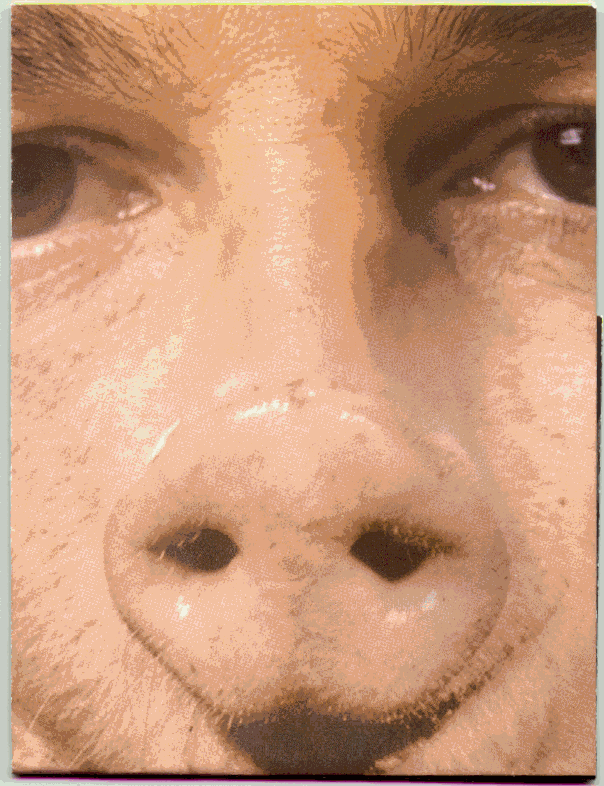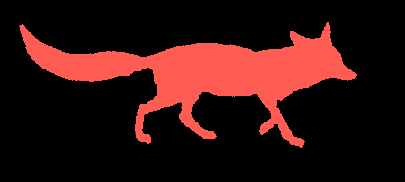
For advice on any animal rights/welfare issue, you can contact Joan via the Animal Rights Helpline (sponsored by Quaker Concern for Animals) on 01223 311828.
Email: noah@thelynx.freeserve.co.uk

Email: noah@thelynx.freeserve.co.uk
Genetic Engineering & Xenotransplantation
Genetic engineering is a technology that allows scientists to alter
the genetic make-up of animals and to mix genetic material between different
species. In simple terms Xenotransplantation is the use of genetically
engineered animal organs for transplant into humans.
The Risks & Implications of Xenotransplantation:
Research has already started on creating ‘spare-part’animals – for use when our own body parts become damaged or simply wear out. Animal organs which are introduced into the human body are fiercely rejected by our bodies and so scientists are experimenting with genetically engineered animals that have been implanted with human DNA in the hope of fooling the body into believing that the organ is of the same species.
IF, scientists were successful in overcoming organ rejection
many problems would still remain – The risk of infection to the patient
and the wider population is not as yet fully known and could be devastating
– a possible ‘AIDS’ type retrovirus cannot be ruled out. It is impossible
to estimate
the cost such diseases could incur. Many viruses are harmless in their
natural home, but when they infect a new host they can become deadly.
Cells from the animal organ will spread to every part of the of a Xenotransplant
patient’s body –
it sounds like a horror story but this will effectively make the patient
a Chimera of two different species.
The full physical and psychological effects of this ‘cell take-over’ are not fully understood by the scientific research community and the long-term implications to the wider human health cannot be calculated.

The pain inflicted upon the animals used in these horrific experiments cannot be imagined. Baboons have been given pigs hearts, pigs have received sheep livers, piglets have received rabbit hearts and the animals awake from these operations with foreign organs plumbed into their bodies. Often the animals have lived for only hours in terrible pain, given a variety of drugs to keep them alive for a few hours more. The question is WHY?? – when Xenotransplantation is dangerous, cruel and unnecessary.
In the UK, experiments are being conducted by a biotechnology company, Imutran. Imutran’s research involves transplanting organs from genetically mutated pigs into monkeys. Imutran are owned by the pharmaceutical corporation Novartis and their next step will be to start transplanting pigs organs into human beings.
Transplantation across species is regulated in this country by the Government Animal Procedures Committee but Imutran have circumnavigated test rules in the UK in the last year and flown pigs out of Britain to Holland for experimentation. Two pigs were flown out in May ’98, one was killed soon after it arrived and the other was operated on the following morning. The pigs’ kidneys were transplanted into two Macaque monkeys which were fed anti-rejection drugs to see how long they could survive (Article: The Observer 10/05/98)
"Xenotransplantation could be a ticking time bomb with unimaginably horrific consequences for the whole of mankind." S.R.

Trumpington is to be the centre for Imutran’s hellish work and they have recently been granted planning permission to build new workshops and laboratories at Church Farm in Maris Lane to undertake more secret research in this area.
Alternatives:
The Wall Street Journal (10/10/97) has estimated "the potential demand for pig organs could create a $6 billion a year market by 2010, in addition to $5 billion annually in sales of immunosuppressant drugs consumed by xenotransplant recipients. Novartis (Imutran’s parent company) dominates the conventional transplant market through the sale of it’s no. 1 drug, Cyclosporin A. Pioneering the push into Xenotransplantation was a strategic move to protect that franchise."
The waiting lists for human donors are increasing and the scientific community are touting Xenotransplantation as a means of fulfilling the need for donors whilst ignoring the possible disasterous consquences. Possible alternatives listed below do not make any money for the biotechnology companies so they are not going to promote them:
It is ARC’s intention to combine campaigning groups for mass demonstrations and by using non-violent Direct Action to raise public awareness to the horrors and potential dangers of Xenotransplantation.
ARC and Animal, People and the Environment (APE) have held very successful demonstrations at Imutran in the past and hope to continue to do so raising public awareness and increasing public support.
What YOU can do: